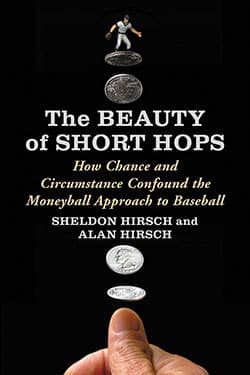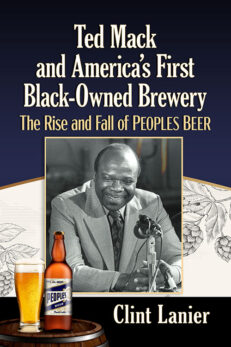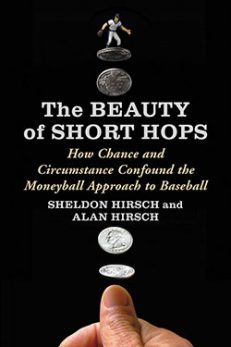The Beauty of Short Hops
How Chance and Circumstance Confound the Moneyball Approach to Baseball
$29.95
In stock
About the Book
Sabermetrics, the search for objective knowledge about baseball through statistical analysis, has taken over the national pastime. The authors argue that this approach began as a useful corrective but has come to harm baseball. The book demonstrates that the so-called moneyball approach, based on sabermetrics, offers only limited guidance for assembling a team, managing games, and evaluating player performance. Equally important, the obsession with statistics and vision of the game as wholly predictable obscure baseball’s spectacular improvisational quality. It is the game’s unquantifiable and relentless capacity to surprise—the source of wonder so central to its greatest stories and personalities—that informs any real appreciation of baseball.
About the Author(s)
Bibliographic Details
Sheldon Hirsch and Alan Hirsch
Format: softcover (6 x 9)
Pages: 212
Bibliographic Info: notes, bibliography, index
Copyright Date: 2011
pISBN: 978-0-7864-6288-9
eISBN: 978-0-7864-8584-0
Imprint: McFarland
Table of Contents
Preface 1
1. Where Moneyball Went Wrong 7
2. Where Sabermetrics Goes Wrong 34
3. The Third Wave 68
4. Two Cheers for Sabermetrics 92
5. What Makes Baseball 112
6. One Normal Crazy Season 124
7. Miscellany Matters 174
Conclusion 191
Selected Bibliography 197
Index 199
Book Reviews & Awards
A Library Journal Starred Review
“engagingly written…highly recommended”—Library Journal; “a thoughtful, spunky counterpoint of a book, sure to be panned by true believers”—Spitball; “thankfully, the Hirsch brothers provide the first sensible rebuttal to the Moneyball approach. After summarizing Moneyball in the opening chapter, the authors…pick apart Michael Lewis’s arguments with relish. The authors compare a base-running gaffe in a Mets-Nationals game to the famous 1960 world series, [describe] a game delayed 52 minutes because of a swarm of bees, baseballs hidden in Wrigley Field’s famous ivy, and many other anecdotes which remind us why we love baseball and its unpredictable nature”—FrumForum; “terrific…. Proponents of sabermetrics should do themselves a favor and buy the book to find out if they should have something to think about. Those who have no use for sabermetrics should buy the book to find out why they are on solid footing.”—Murray Chass, 2003 J.G. Taylor Spink Award Recipient; “Compelling…authors Sheldon and Alan Hirsch take aim at [the] presumption that baseball is essentially a series of highly predictable results. They call into question the value of many of the advanced statistics that have popped up in recent years…correctly pointing out that it doesn’t take more than a handful of short hops (or bad bounces) over the course of a season to yield dramatically different ratings/rankings/statistics.”—Kevin Greenstein, Department of Communication and Journalism, Suffolk University; “Good, fun stuff…. The descriptions of bizarre incidents and freak plays make for a good read and is done in a similar vein as some of Rob Neyer’s work on the game’s historical oddities.”—Joe Tarring, columnist for www.fullcountpitch.com.





